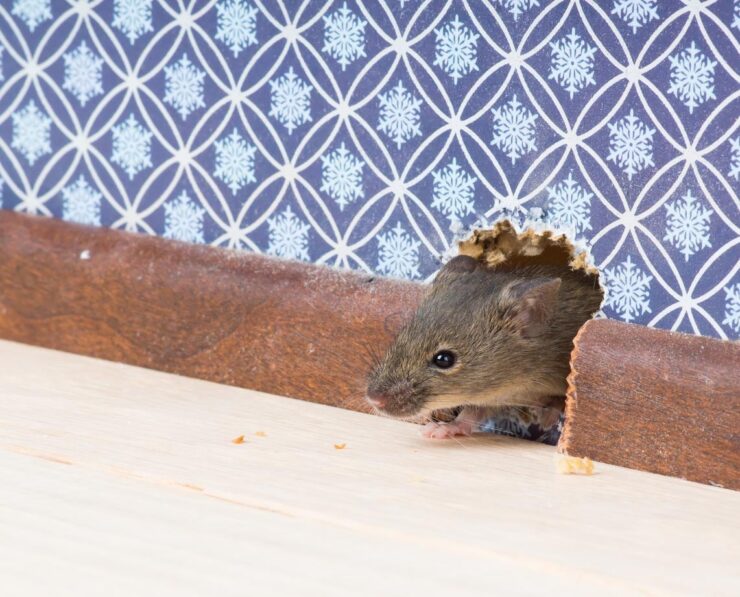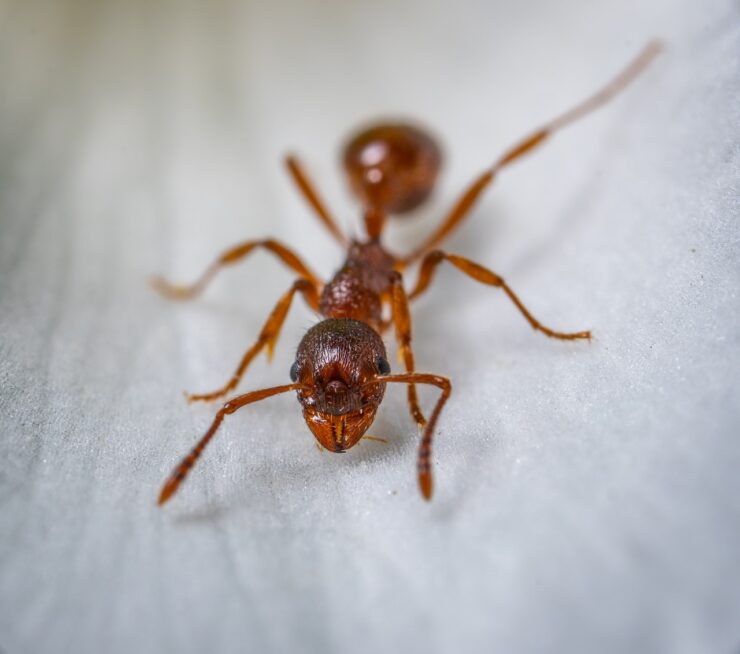Are you tired of dealing with pesky pests in your home or garden? Don’t worry, we’ve all been there. But instead of shelling out big bucks for a professional exterminator, why not try some DIY pest control methods first? Trust us, it’s not as daunting as it sounds.
In this post, we’ll go over 7 easy and effective ways to get rid of those critters without breaking the bank . So grab your spray bottles and let’s get to work!
1. Keep it clean

Keeping your home clean and clutter-free is a simple but effective way to prevent pests from moving in and making themselves comfortable. By regularly sweeping, vacuuming, and wiping down surfaces, you can remove any crumbs or messes that might attract bugs or other pests.
For example, if you spill some sugar on the kitchen counter, be sure to clean it up right away, as the sweet smell could attract ants or other insects. Similarly, if you have a lot of clutter in your home, it can create hiding spots for pests, so it’s a good idea to tidy up and get rid of any unnecessary items. This can not only help prevent pests from moving in, but it can also make your home feel more organized and welcoming.
2. Use natural repellents
If you simply read more about pest control cost, you will understand why it is beneficial to use some natural remedies and repellents. Using natural repellents can be a great way to keep pests at bay without relying on chemical products. Essential oils are a particularly popular choice for this purpose, as they can be effective at deterring a wide variety of pests.
For example, peppermint oil is often used to repel ants, mosquitoes, and mice, while citronella oil can help keep mosquitoes and other flying insects away. Eucalyptus oil is another effective natural repellent that can be used to deter ants, flies, and mosquitoes. To use essential oils as a natural repellent, simply mix a few drops with water in a spray bottle and spritz it around the affected areas. Just be sure to read the label and follow the instructions carefully, as some essential oils can be toxic to pets or children if ingested or applied directly to the skin.
3. Seal up those entry points

Pests are masters at finding their way into homes through even the smallest of openings, so it’s important to seal up any cracks or holes that might be inviting them in. This can include gaps around windows, doors, and the foundation of your home. One way to do this is by using caulk or weatherstripping to fill in any gaps that you find.
For example, if you have a gap under your front door, you can use a door sweep to seal it off and prevent pests from crawling through. Similarly, if you have damaged screens on your windows, it’s a good idea to repair or replace them to keep pests out. By sealing up these entry points, you can help prevent pests from finding their way into your home and causing problems.
4. Plant some pest-repelling herbs
Some herbs can be very effective at repelling pests, so planting them around your home or garden can be a natural and effective way to keep bugs and critters at bay. Some options to consider include basil, which can help repel flies and mosquitoes, rosemary, which can help repel mosquitoes and other insects, and mint, which can help repel ants and mice.
In addition to their pest-repelling properties, these herbs can also add some delicious flavor to your cooking, so it’s a win-win situation! Just be aware that some herbs, like mint, can be quite invasive, so it’s a good idea to plant them in pots or containers to keep them from taking over your garden.
5. Make a homemade ant trap

Ants can be a real nuisance, especially when they invade your kitchen in search of food. One way to get rid of them is by making a homemade ant trap using a mixture of sugar and borax. To make the trap, simply mix equal parts sugar and borax together and place the mixture in a small container or along ant trails. The ants will be attracted to the sugar, but the borax will ultimately kill them.
Just be sure to keep the ant trap out of reach of pets and children, as borax can be toxic if ingested. You can also try using other natural ant repellents, such as white vinegar or cucumber peels, to keep ants away from your home.
6. Try a DIY fly trap
Flies can be a major annoyance, especially during the warmer months when they seem to be everywhere. Instead of using a fly zapper or spray, you can try making your own fly trap using a plastic bottle and some sweet bait. To make the trap, cut the top off a plastic bottle and flip it upside down, placing it back into the bottom half of the bottle. Then, fill the bottom half with a mixture of water and sweet bait, like sugar water or overripe fruit.
The flies will be attracted to the sweet scent, but they won’t be able to escape once they fly into the bottle. This is a simple and effective way to trap and kill flies without using harsh chemicals. You can also try using other natural fly repellents, such as citronella candles or essential oils, to keep flies away from your home.
7. Keep your garbage sealed

Pests are often attracted to the smell of garbage, so it’s important to keep your trash cans sealed tight to prevent them from getting into your garbage. One way to do this is by using a garbage bag with a secure tie. This will help contain the smell of your trash and prevent pests from getting into it. You should also make sure to regularly take out the trash to prevent any unwanted visitors.
If you have a compost bin, be sure to keep it sealed as well, as this can also attract pests if it is not properly maintained. By keeping your garbage sealed and taking it out regularly, you can help prevent pests from getting into your trash and causing problems.
Conclusion
If you follow some of these tips, we believe that you will not need to call professionals for help. These pests can give real nightmares, but you just have to be persistent.

